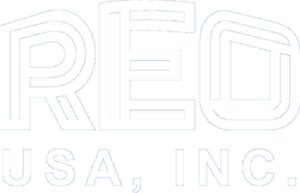Vibratory conveyor technology is an ideal conveyor system for transporting goods of various sizes, from the smallest pieces of metal to heavy crankshafts. However, every vibratory feeder requires a control unit to ensure that conveying and a controlled flow of the conveyed parts are possible in the first place. Under the term REOVIB, REO offers different series of control units for a wide range of requirements. These include, for example, simple control units that use triacs or thyristors to provide a variable voltage for the magnet in phase-angle operation, or frequency converters that generate any drive frequency and amplitude for the vibratory feeders. The designs of the units start with printed circuit board versions for integration into their own housings or control boxes, continue with control cabinet installation units for mounting rails or mounting plates, and end with housing versions that are too self-sufficient in protection classes from IP54 to IP65.
The networking of individual units to form complete feed systems is possible via the control inputs and outputs. This means that even more complicated set-ups and conveying requirements can be realised. A connection to higher-level control systems can be implemented by means of analogue signals or also by fieldbus couplings such as Profibus, CAN bus, EtherCAT or EtherNet/IP and ProfiNet. Optionally, many versions are also available with UL/CSA certification.
But REO is already thinking ahead: with the progressive change in industry, the demands on production and communication, in terms of scalability and interoperability, are increasing. Thanks to REO’s intensive research and development, we are already able to offer control units such as the MFS 368, which enables wide-ranging integration into precisely this modern requirement profile of the fully networked Industry 4.0. Digital technology and rethought processes enable a production and system monitoring quality that would be unthinkable with conventional technologies. For this purpose, REO equips its devices IIoT-ready and introduces specially developed hardware and software solutions.
On the hardware side, this includes the fact that the devices can be accessed via a conventional network infrastructure using the REONET DL (Devices-Link) interface. By using OPC-UA, REONET DL also enables participation in the world’s largest ecosystem based on common standards.
On the software side, REO offers the possibility of simplifying the configuration of devices with the REONET CT (Configuration Tool) software. Using an intuitive web interface, configurations for devices can be created, distributed, saved, restored and adapted. The automated process ensures that no parameters are omitted and that the units function as intended.



